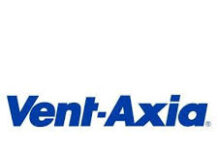
India has demonstrated strong commitment to the Montreal Protocol by phasing out key ozone-depleting substances ahead of schedule, establishing robust policies, and taking on a leadership role in global negotiations. A few of the steps include:
Early ODS Phase-Out: Phased out Chlorofluorocarbons (CFCs), Carbon Tetrachloride (CTC), and halons for controlled use by 2010, ahead of Montreal Protocol schedules.
Policy Framework: Enacted Ozone Depleting Substances (ODS) (Regulation and Control) Rules in 2000, banning CFCs and halons in new equipment by 2003.
Global Leadership: Advocated for developing nations since 1989, securing the Multilateral Fund (MLF) in 1990 for technical and financial support.
HCFC Phase-Out: Met 2013 Hydrochlorofluorocarbon (HCFC) freeze and 2015 10% reduction targets under HCFC Phase-out Management Plan (HPMP) Stage-I, phasing out 341.77 Ozone Depleting Potential (ODP) tonnes.
RAC Servicing: Trained over 20,000 technicians in the Refrigeration and Air Conditioning (RAC) sector under the National CFC Consumption Phase-out Plan (NCCoPP) to shift to non-ODS technologies.
India proactively ceased the production and consumption of CFCs from 1st August 2008, 17 months ahead of the Montreal Protocol schedule, while ensuring the supply of pharmaceutical-grade CFCs for asthma and COPD patients during the transition period. The HCFC Phase-out Management Plan (HPMP) was prepared in close collaboration with industry, research institutions, and other stakeholders, with a Roadmap launched in 2009 to guide the accelerated phase-out schedule.








